
by admin | May 25, 2021 | Business
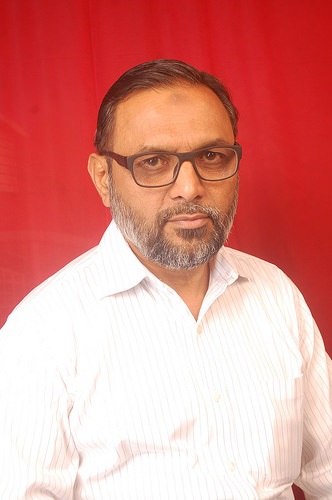
Dr.Qasim Rasool Ilyas
New Delhi: (Press Release) Roll Back Fuel Price and bring a National Fuel Policy, demanded Welfare Party of India Welfare Party of India shunned the BJP government for increasing the price of Diesel and Petrol and demanded National fuel price policy matching international standards.
Dr SQR Ilyas National President of Welfare Party of India strongly condemned Modi government and said despite crude oil prices dropping significantly in the international market, the Modi government continues to loot the common man by not passing on the relief instead it has exorbitantly increased the fuel price and demanded common fuel price policy for the entire nation in tune with the international standards.
He said the Pandemic lockdown has badly affected the common man and many have lost their livelihood and for many their salaries slashed and during such pressing times the Modi government instead of providing some relief has insensitively increased the fuel price.
He said the agriculture sector is already badly affected by the government’s bad policies further the pandemic crises has worsened the situation and now the fuel hike on this sector, who are largely dependent on it is a death knell blow.
Dr Ilyas pointed out that the fuel price hike will have impact on all essential commodities and will lead to its price hike too which will ultimately burn the pockets of the common man.
Dr Ilyas pointed out that the international crude oil prices have fallen and are at the lowest level in 15 years, yet petrol and diesel prices in our country are hiked and common people continue to suffer under the Modi government.
He urged the Modi government not to suck the blood of the poor citizens and demanded the fuel price hike to be dropped immediately.
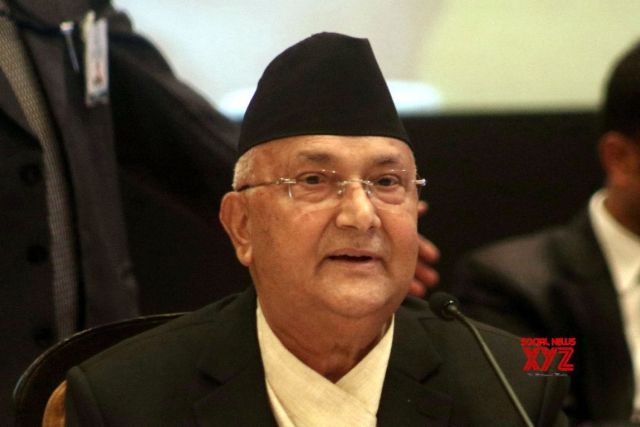
by admin | May 25, 2021 | World

K.P. Sharma Oli
Kathmandu : Launching a fleet of battery-operated buses Nepal Prime Minister K.P. Sharma Oli has said that his country will reduce dependence on imported petroleum products by 50 per cent or even more by the year 2050.
Developed by Chinese company BYD the public fleet was inaugurated at a special function in Lalitpur on Tuesday by Oli who promised to move towards a cleaner environment and greener economy.
“Our overall national goal is to reduce dependence on imported petroleum products by 50 per cent or even more by the year 2050,” he said.
The conversion of public transport to domestically-produced electricity would displace the expensive imported gasoline and diesel, Xinhua news agency quoted Oli as saying.
He said Nepal was going to be self-reliant in hydropower within the next few years and the government aimed to ensure that at least 20 per cent of the overall vehicles would run on electric power by 2020.
In the initial phase, five electric buses would ply on capital’s streets here. Then the fleet would extend to Lumbini, the birth place of Lord Buddha, after the construction of the international airport is completed in the region within the next 10 months.
—IANS
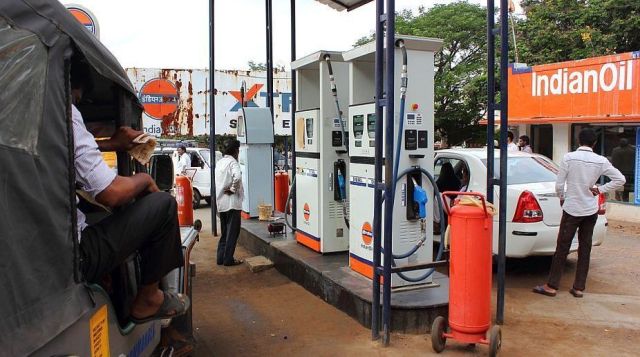
by admin | May 25, 2021 | Commodities, Commodities News, Economy, Markets, News
 Mumbai : In a Dussehra relief for consumers, state-run oil marketing companies (OMCs) cut the prices of key domestic transportation fuels — petrol and diesel — for the second consecutive day on Friday.
Mumbai : In a Dussehra relief for consumers, state-run oil marketing companies (OMCs) cut the prices of key domestic transportation fuels — petrol and diesel — for the second consecutive day on Friday.
The prices of petrol and diesel were lowered in the national capital by 24 and 10 paise respectively.
According to the IndianOil Corp data, petrol was priced at Rs 82.38 per litre in the national capital, down from Rs 82.62 on Thursday.
As per the data, the key transportation fuel was priced at Rs 87.84 in Mumbai, Rs 84.21 in Kolkata and Rs 85.63 per litre in Chennai, down 25 paise from its previous rate.
As per the country’s pricing mechanism, the domestic fuel prices depend on international fuel prices on a 15-day average besides the value of the rupee.
Prices vary from region to region due to local taxes as the product is excluded from the GST regime. Delhi has the lowest tax rate among the four metro cities.
In tandem with petrol, the cost of diesel declined on Friday across all metros in a range of 10-11 paise.
On Friday, the diesel price in Mumbai was at Rs 79.13 from its previous price of 79.24 on Thursday.
Prices of diesel in Delhi, Kolkata and Chennai declined to Rs 75.48, Rs 77.33 and Rs 79.82 a litre from the Thursday’s Rs 75.58, Rs 77.43 and Rs 79.93 respectively.
The downward revision also comes on the back of multiple factors such as lower international crude oil cost and a strengthened rupee against the US dollar.
Accordingly, the Brent crude was priced below $80 per barrel, which in recent past traded around $85 a barrel, while the rupee closed at 73.50 to a greenback from its previous close of 73.61 to a US dollar.
On a daily basis, the decline in petrol and diesel prices commenced on Thursday nearly a fortnight after Finance Minister Arun Jaitley announced a cut in excise duty by Rs 1.50 a litre.
Additionally, the state-owned oil marketing companies (OMCs) had been mandated to reduce prices of petrol and diesel by Re 1 a litre. This is the first time after the announcement that the prices have come down.
—IANS
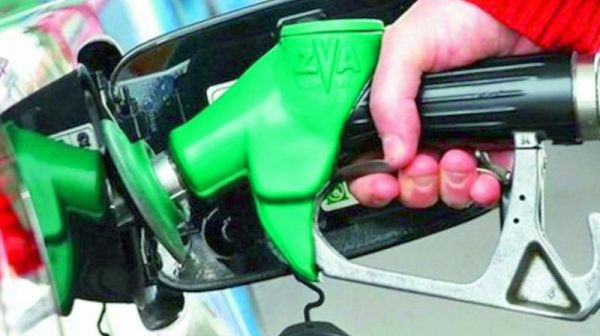
by admin | May 25, 2021 | Economy, Markets, News
 New Delhi : Prices of petrol and diesel, already at unprecedented levels in the country, rose for the ninth consecutive day on Monday.
New Delhi : Prices of petrol and diesel, already at unprecedented levels in the country, rose for the ninth consecutive day on Monday.
In the national capital, petrol was sold at Rs 79.15 per litre, up from Rs 78.84 on Sunday.
In Kolkata, Chennai and Mumbai, the fuel was priced at Rs 82.06, Rs 82.24 and Rs 86.56 per litre respectively, all a new record, against Rs 81.76, Rs 81.92, Rs 86.25 on Sunday.
The surge in fuel prices is largely attributed to the rise in crude oil prices and high rate of excise duty in the country. Brent crude oil is currently priced over $78 per barrel.
The recent slump in rupee also has lifted the import cost of crude oil, subsequently raising fuel prices.
On Monday, the key transportation fuel was sold at Rs 71.15, Rs 74, Rs 75.19 and Rs 75.54 per litre in Delhi, Kolkata, Chennai and Mumbai respectively, up from Rs the previous levels of Rs 70.76, Rs 73.61, Rs 74.77 and Rs 75.12 per litre.
Diesel prices gain significance as the fuel is used in the transportation of farm products and a rise in the prices may puah up inflation.
—IANS
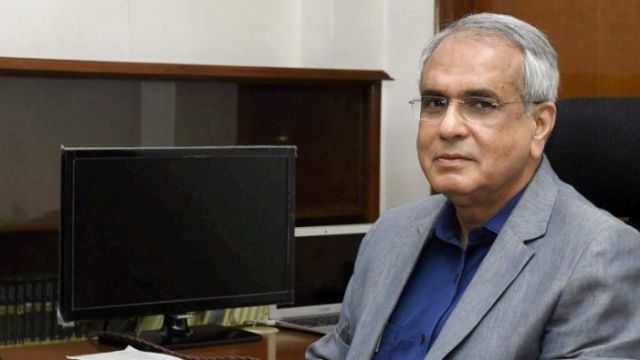
by admin | May 25, 2021 | Interviews

Vice Chairman of Niti Aayog, Rajiv Kumar
By Vishav,
New Delhi : Petroleum is the taxation milch cow for the central and the state governments and it is unlikely to be brought under the Goods and Services Tax (GST) any time soon.
That’s also the view of the Vice Chairman of Niti Aayog, Rajiv Kumar. Several senior ministers have demanded that petroleum products — basically petrol and diesel — be brought under the the new taxation regime.
But says Kumar: “It (oil) can’t be brought under GST. That’s because the total state and central taxes on petrol put together are around 90 per cent right now.”
He told IANS in an interview here: “I can’t see how any state will take a cut so huge as the highest rate under the GST is 28 per cent. A new GST band will have to be opened up — and that will be an enormous exercise.”
While supporting “in principle” the idea of bringing all items under the new indirect tax system, he said those talking about doing it now have not thought this through.
“The better way to do this is to first start reducing taxes (on petroleum products) as I have said many times in public. States impose ad-valorem tax on oil and so they all had a windfall gain (when prices rose). There is a need to rationalise it,” he said, adding “states should especially cut taxes.”
Kumar said that both the central and the state governments should start the process of weaning themselves away from their dependence on oil taxation.
According to him, the Central government collects Rs 2.5 lakh crore as tax on oil while almost Rs 2 lakh crore is collected by the states. “From where will they compensate it?” he asks adding that if the taxes are reduced gradually, the burden on the economy will get reduced.
“Higher oil prices are like a tax on the economy. If oil prices are brought down, economic activity will also improve,” Kumar said.
“Once that is achieved, once the revenues have gone up from other sources and the economy has picked up, then you can think of bringing oil under GST. It’s not that easy,” he added.
Ever since the new tax legislation was rolled out on July 1 last year, there had been talk of bringing it under the GST with top government officials and ministers supporting the need for such a move. The Opposition parties, of course, have been clamouring for it.
In December last year, Finance Minister Arun Jaitley had told the Rajya Sabha that the Central government was in favour of bringing petroleum products under the ambit of GST after building a consensus with states.
More recently, in April, when the international crude oil prices were going up sharply, pushing the domestic petrol prices to record levels, BJP President Amit Shah told a rally in Mumbai that efforts were on to bring petrol and diesel under the GST.
From Road Transport and Highways Minister Nitin Gadkari to Petroleum and Naural Gas Minister Dharmendra Pradhan, almost every senior BJP minister has favoured bringing petroleum products under the GST.
Among states, Maharashtra Chief Minister Devendra Fadnavis has also expressed willingness to bring petrol and diesel under GST in his state if a consensus was brought about on it.
Kumar says he was in favour of such a change, but it has to be thought through in practical terms.
“I am just simply saying that let’s not try to hurry it because you would only run into problems as there is a huge dependence on oil,” he said.
“Even electricity should be brought under GST. Everything should be under GST. But I am not sure whether it is worked out yet. Let’s agree to bring it under GST but over a period of time as is practical,” he said.
(Vishav can be contacted at vishav@ians.in)
—IANS






